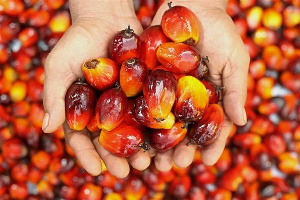Established in 2006 under the Alternative Livelihood Programme, GSOPP is a non-profit subsidiary of Golden Star that seeks to reduce poverty and stimulate wealth-creation through the development of oil palm plantations in its catchment communities, using the smallholder concept.
In an interaction with the B&FT, Mr. Wray stated that the move is consistent with Golden Star’s approach to social responsibility, which prioritizes human capital development on its scale of interventions.
With yields from the plantation averaging between 15 and 18 tonnes per hectare, which compares very favorably with top domestic commercial plantations at 12 tonnes per hectare and small-scale operations with approximately six, he said: “We are looking to getting the business properly certified with the highest international certifications, and all that will go to help the end-price and give the products a very competitive position on the global market”.
Similar thoughts were expressed by the firm’s Chief Financial Officer, Graham Crew who argued that while hard infrastructure has its place, an initiative such as GSOPP should, all other things being equal, outlast Golden Star’s direct operations at Wassa and provide a more enduring and sustainable legacy.
Environmental sustainability
With global warming ‘dangerously close to spiraling out of control – as the earth is likely to hit a 1.5C warming limit within 20 years, according to a recently released UN report the Golden Star CEO said his outfit has both proactive and reactive steps to address the effects of climate change on their operations.
With the possibility of flash floods on the one hand and scorching droughts on the other, Mr. Wray reasoned that the issues are multi-faceted; some affecting the direct operation of mines and others their host communities, which could spiral into agitations.
“There are so many angles to it [climate change], and at the moment we are doing some work on trying to model in a world where temperatures rise another one and a half or two degrees; what could be the climatic impact where we are mining, and how could that impact us? We are trying to do that, but we are more concerned about what we can do to prevent it in the first place and start to set targets,” he explained.
While the palm trees at GSOPP serve to suck in excess carbon, Mr. Wray said that is not enough, as much work has begun in earnest to find ways in which Golden Star can minimize its carbon footprint and use water more effectively.
Sounding a note of caution, he added: “In the modern world that we have, we have to have mining; we need those precious metals for everything that we do, but the question now is: how do we do this responsibly? Mining firms will have to grapple with this, especially as investors are becoming increasingly concerned about the environment”.
 Home Of Ghana News Ghana News, Entertainment And More
Home Of Ghana News Ghana News, Entertainment And More





